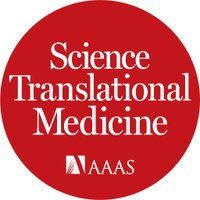
Canran Wang
@wcanran
PhD student @Caltech Gao Lab; focusing on wearable bioelectronics
ID: 1044096680767873024
24-09-2018 05:30:21
17 Tweet
208 Followers
367 Following





Check our recent review paper titled “Muti-dimensional printing for bone tissue engineering” — Advanced Healthcare Materials @AdvSciNews Many thanks to the team! Ali Khademhosseini Terasaki Institute for Biomedical Innovation onlinelibrary.wiley.com/doi/10.1002/ad…


Our new preview article in Matter_CP highlighting a soft bioaffinity sensor array for chronic wound monitoring from CT Lim NUS! Canran Wang Ehsan Shirzaei Sani cell.com/matter/fulltex…


Our latest paper on Wearable Bioelectronics for Chronic Wound Management - Advanced Functional Materials @AdvSciNews - Cheers to Canran Wang Ehsan Shirzaei Sani ! onlinelibrary.wiley.com/doi/10.1002/ad…

In this work Nature Biomedical Engineering, we report a highly adaptable wearable sensing strategy that enables us to monitor a number of biomarkers (e.g., nutrients) Caltech Caltech Division of Engineering & Applied Science Cheers to MINQIANG WANG Yiran Yang Jihong Min! nature.com/articles/s4155…


New in Nature Biomedical Engineering, we report a wearable biosensor for wireless monitoring of systemic inflammation. We identified elevated sweat CRP in patients with heart failure, COPD, and infection. Cheers to JiaobingTu! Caltech nature.com/articles/s4155…

New in NatRevMaterials, we discuss the progress and prospects of translational wound management materials and technologies. Contrasts to Canran Wang Ehsan Shirzaei Sani Caltech Caltech Division of Engineering & Applied Science! nature.com/articles/s4157…

New in Science Translational Medicine, we present iCARES—a microfluidic smart bandage designed for real-time wound exudate management and analysis in human chronic wounds. Congrats to Canran Wang, Kexin, David G. Armstrong follow @dgarmstrong.bsky.social , and the team!! Caltech USC science.org/doi/10.1126/sc…

A “smart” wearable microfluidic device can continuously monitor chronic wounds in mice and humans by collecting and analyzing wound exudate, and could facilitate real-time wound management and more personalized treatments. Wei Gao Caltech Division of Engineering & Applied Science scim.ag/4cRDfbw
